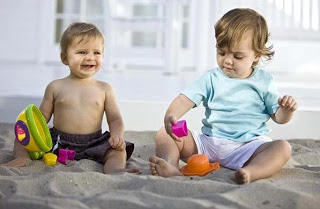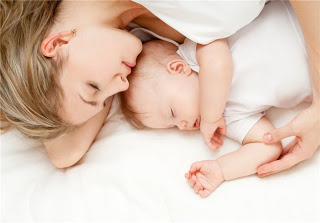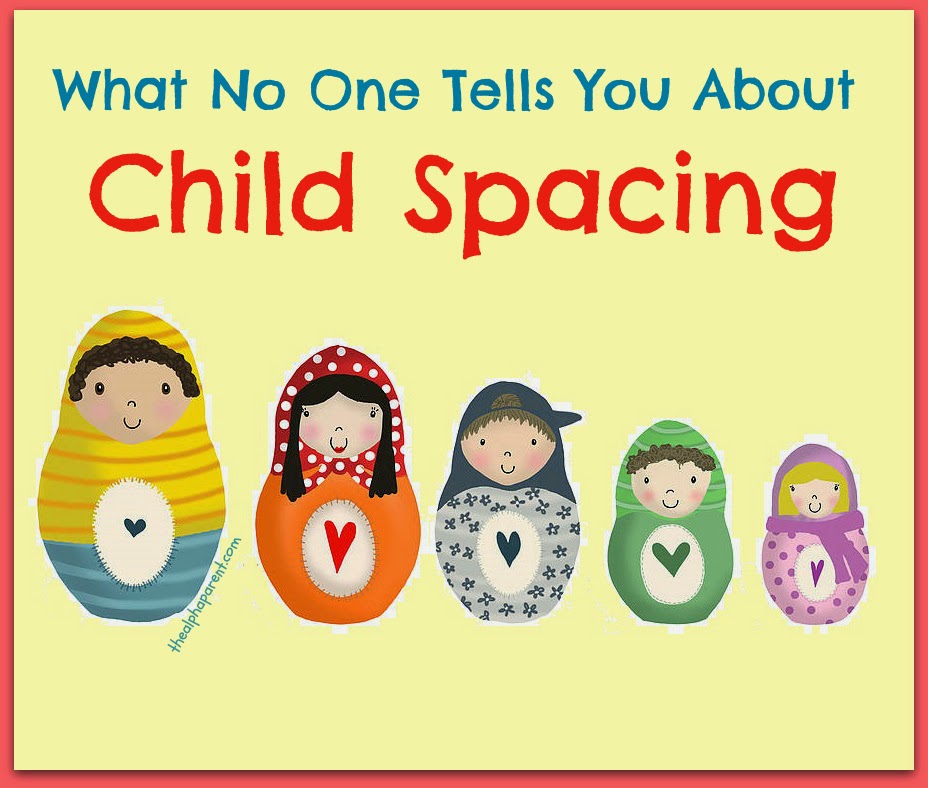
You may have in mind the perfect age gap for your brood. However did you know that certain age gaps carry with them, emotional, financial, intellectual and even health consequences?
At present, we parents do not have the option of determining whether a next-born child will be active or quiet, able-bodied or disabled. But we at least have some control over the child’s age relative to that of his older sibling. Here I am going to explore the serious (and not so serious) consequences of each birth spacing.
1 Year Age Gap
(Your child is 1 year old when your next baby is born)
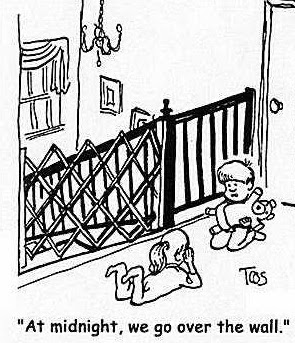
Pros:
- You have a lower risk of preeclampsia than mothers who space their pregnancies wider apart (Mikolajczyk).
- It consolidates the exhausting years that you are in “baby mode”. You become a well-oil and efficient parenting machine with your conveyor belt of diaper changing, tooth brushing and tandem feeding. (Shared bathwater, anyone?) Such efficiency means that you have more time to spend on other activities (Osmanowski and Cardona).
- If you work you will be on maternity leave while your eldest is still very much a baby, so you’ll be around for important milestones such as first steps and words.
- Your children will go through the same stages in fairly close succession, which makes it financially easier to hand down clothing, toys and equipment rather than arranging storage for years.
- Observational studies of parents and how well they coped with young children have found that this age gap is easiest as the parent can treat both babies similarly (Wagner et al).
- This age gap is thought to be best at unifying the family. “The early hardship of caring for two young children can help draw fathers into the action. The tasks are so demanding that even the most alienated and reluctant father would have to step in” (Hart).
- Your children may have the same friends, watch the same TV, and play the same games, all of which often means less work for you.
- You can organise family outings without having to wait years until the youngest child is ready to participate.
- You can get rid of all of the baby clutter quicker.
- Love variety? Good, because that’s what you’re likely to get. Where siblings are close in age they seek, child psychologists have argued, to differentiate themselves from one another all the more. The process is referred to as ‘de-identification’ (Brazier).
- They’ll play well together. “Siblings who know they need each other to continue their games are motivated to sort out their disagreements” (Baby Centre). In other words, as the importance of companionship goes up, the importance of rivalry goes down.
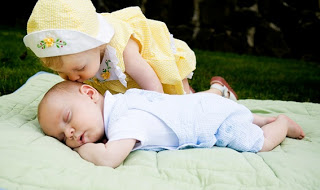 Your existing child is less likely to reject the new baby as they won’t fully understand issues such as displacement, territory or personal possessions. Having not experienced an extended period of exclusive parental attention, they develop lesser expectations of receiving preferential treatment from parents. These benefits have been shown to extend into adolescence (Kidwell).
Your existing child is less likely to reject the new baby as they won’t fully understand issues such as displacement, territory or personal possessions. Having not experienced an extended period of exclusive parental attention, they develop lesser expectations of receiving preferential treatment from parents. These benefits have been shown to extend into adolescence (Kidwell).- Studies have shown that girls benefit intellectually from closer-spaced sibling age gaps. However the reverse is true for boys (Rosenberg and Sutton-Smith).
- The closer the age gap, the more creative your children are likely to be, regardless of gender (Baer et al).
- The ever-increasing age of first-time mothers can make it feel like that their so-called biological clock is ticking faster and faster. Having your children in quick succession can pacify fertility fears.
- This age gap can also help career and childcare choices. If you’re working it can be easier to organise childcare for children of a similar age, rather than having years of juggling different childcare arrangements. You may save money because you can get a nanny for both children – this can work out cheaper than two daycare places.
Cons:
- Falling pregnant so soon after your last pregnancy increases the risk that you will be deficient in important nutrients. For instance, you have a greater risk of developing iron deficiency and anaemia (Morasso et al; Vandenbroucke et al) and gastroschisis (Getz et al).
- You have an increased risk of placental abruption (Blumenfeld et al).
- Compared to women who wait two years to conceive, you are 3.4 times more likely to experience labor or delivery complications (MDCH).
- If your previous birth was via caesarean, you are at an increased risk of uterine rupture if you attempt a VBAC. To give you the stats: waiting less than 6 months before trying again will triple your chances of uterine rupture during VBAC (Stamilio et al; Esposito et al 2000).
- Your baby is at a greater risk of having a lower-than-expected or low birth weight (less than 2500g), being preterm (King). This is thought to be linked to the low collagen concentrations in the cervix of women with closely spaced pregnancies (Sundtoft et al).
- They are also at increased risk of suffering from congenital anomalies (Chen et al), schizophrenia (Gunawardana), menstrual disorders (Smits et al), and low IQ (Probert; (Pettersson-Lidbom and Skogman Thoursie). The latter is particular so if your child is a boy.
- Your baby is also at an increased risk of stillbirth or succumbing to early neonatal death, even if you live in a high-income country. Ouch! (Wendt).
- You are more likely to develop the baby blues (Gürel).
- The shorter the interval between pregnancies, the higher the SIDS rate (American SIDS Institute).
- Over-supply of breastmilk is more likely to occur if your children are closely spaced. It’s as though your body is producing milk for a bigger baby and your newborn struggles with the faster flow of the milk (Cave and Fertleman).
- Looking after a baby while you’re pregnant can be very tiring. Your body won’t have fully recovered from the last pregnancy. You may be excessively tired and easily run down. Iron and calcium stores will not have had time to replenish (Winkvist et al; King).
- Anything less than an 18 month gap has been shown to reduce a woman’s life expectancy (Centre for Population Studies; The Independent).
- Some studies suggest that you will be more likely to mistreat your children if you have spaced them this closely. 18% more likely, to be precise (Thompson et al).
- Giving birth within 12 months of a prior birth is associated with complications such as placental abruption, which happens then the placenta separates from the uterine wall, and placenta previa, which occurs when a portion of the placenta covers the cervix (MayoClinic).
- Having a gap of less than 17 months is associated with a significantly increased risk of having a baby of prematurely and underweight. The risks are highest for babies conceived less than six months after the birth of a previous child (World Health Organisation; Conde-Agudelo et al).
- You may feel that you haven’t had enough time alone with your first-born before the next arrives.
- Your older child is still very much a baby. He has plenty of baby needs and is going to have a tough time waiting for you to meet them.
- Tandem breastfeeding is not appealing to everyone. Even if you like the idea, some babies self-wean during pregnancy (due to taste changes and possible drop in supply) so your breastfeeding relationship with your firstborn could be prematurely cut short.
- You’ll find it harder to shift the ‘baby weight’ (Davis).
- The early years may pass in a blur. It will be an all-consuming experience of sleepless nights, diapers, breastfeeding, pureed food and laundry.
- Being so close in age may mean that you are less able to enjoy your babies as individuals.
- Your toddler may not be sleeping through regularly when your baby arrives.
- In the early years, outings will be limited as you struggle to attend swim lessons, the park, and Mother & Toddler groups with both children.
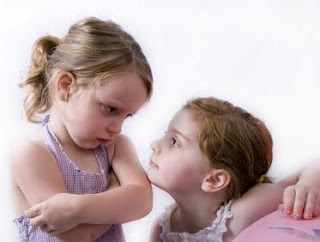 Your children will be at an increased risk of attachment problems. The theory is that neither child gets enough attention from the mother to create the close mother-child bond that children need to flourish (Kauai Longitudinal Study).
Your children will be at an increased risk of attachment problems. The theory is that neither child gets enough attention from the mother to create the close mother-child bond that children need to flourish (Kauai Longitudinal Study).- Common interests lead to competition and one of the children (usually the youngest) can become insecure if he constantly does less well than his older sibling.
- It’s not all good news for the first-born either. Because their sibling was born before the older child lost the belief that they’re responsible for everything that happens, a long-last psychological legacy often occurs: essentially, the older child, driven by fear of rejection, will have a chronic tendency to be highly self-critical and less likely to forgive themselves when they make mistakes. Many firstborns never lose this tendency to feel guilty and/or overly responsible when things go wrong (Blair).
- At school, your younger child may feel like they are in the older child’s shadow academically. Being closer in age encourages competitiveness.
- Some recent studies suggest that children who are born only a year after an older sibling are three times more likely to be diagnosed with autism (Gunnes et al; Cheslack-Postava et al). This is because women are more likely to have depleted levels of nutrients such as folate and iron, as well as higher stress levels, after a recent pregnancy (affecting fetal brain development).
- In the future, when your children want to start college, it’s going to cost a lot of money in a short space of time (Powell).
- You are likely to need extra equipment, like a second cot (if you haven’t transitioned number-one by number-two’s arrival, or if your cot was intended to convert to a bed), a second car seat and a double stroller.
- There will be double the college expenses, wedding expenses, etc within relatively close succession.





